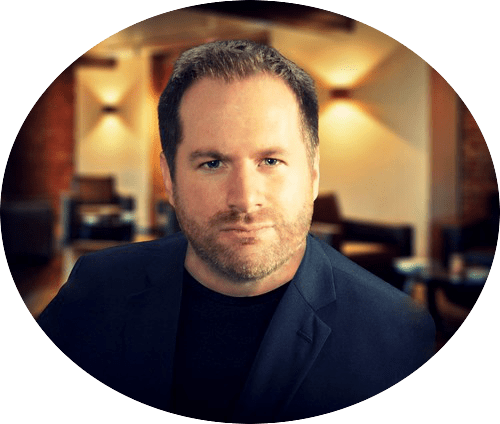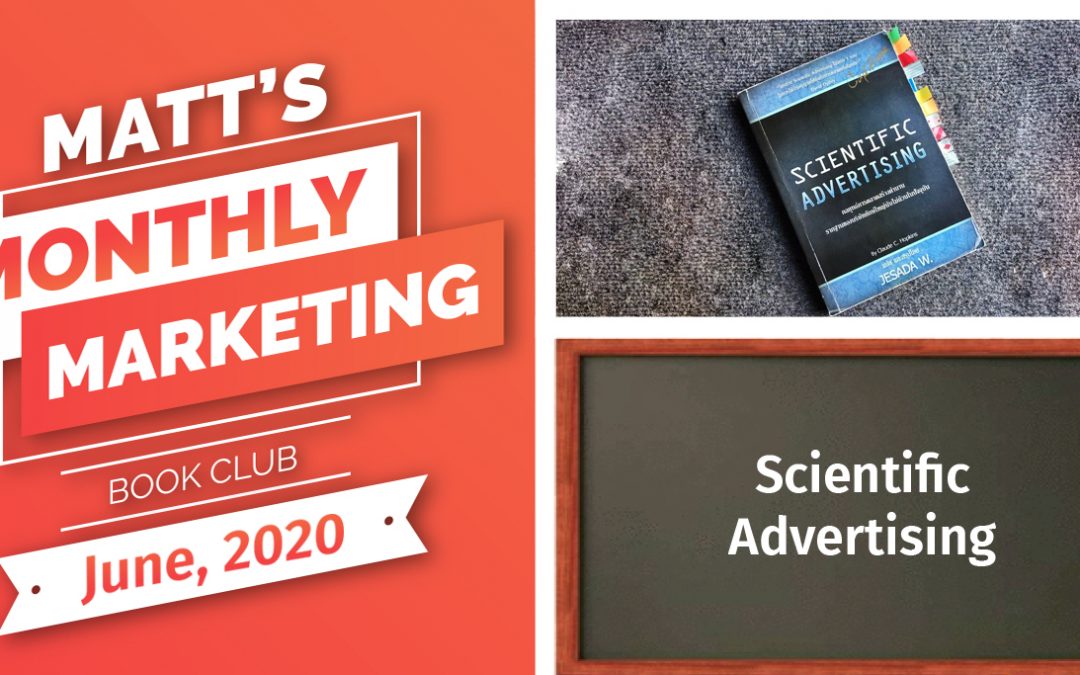[sb name="top-banner"]
[sb name="book-club-top"]
Scientific Advertising was written in 1966 by Claude Hopkins.
I still consider it to be the most important text ever written about advertising. It tackles every major area of advertising, such as how to measure campaigns, how to situate copy and pictures in ads, how to write headlines, body copy and calls to action and how to measure and adjust campaigns for maximum future results.
The book begins with a very confident and reassuring chapter that claims all of the work toward discovering the best way to advertise has been done.
While Hopkins points out every campaign is different, he makes very clear that the general laws of advertising are now etched in stone, and as long as humans continue being human, nothing will change them.
The time has come when advertising has in some hands reached the status of a science.
Claude Hopkins considered advertising salesmanship in print. Essentially, if your advertising doesn't produce profit, it's not advertising, it's a total waste of money.
All too too often I see ads that do nothing more than generate the attention of the masses, while giving no clear-cut reason for the spectator to contact the company who promoted the ad in the first place. Hopkins was one of the first ones to condemn this approach.
He was very clear on companies being able to use advertising to singularly speak to one segment of a population, quickly communicate the benefits of purchasing an offering, and drive the spectator to take immediate action either by giving something away or offering a time-sensitivitie special.
Hopkins also goes into the tremendous fortunes that can be made in writing ads, and highlights his own immense wealth and success as proof. However, he's not being braggadocios, but rather wishes to demonstrate the sheer amount of sales one properly built ad, based on relentless testing, market analysis and advertising expertise can produce.
Despite the book being several decades old, I enjoyed it very much. Hopkins is much more factual than Ogilvy, while gives more value-per page than Reeves. However, like Ogilvy, you can clearly see how he is writing this to a generation filled with horrible ad agencies wasting their clients' time and money.
Here were some takeaways I learned from reading this book for the first time:
- Be as specific as possible in ads. Vague promises "roll off human understanding like water from a duck."
- Use as many words and as much space as possible to reinforce the offering, and its benefits. Later, Jeff Walker would emphasize this same approach, only spreading the message out in sections of time (through email), rather than all at once. This makes sense as the internet has produced opportunities for market outreach that didn't exist in Hopkins' day.
My only criticism of this books is Hopkins' work ethic. He highlighted that his early success came from working over 20 hours a day, 6-7 days a week! While that's extraordinary, and perhaps Marissa Mayer, CEO of Yahoo would agree to that work ethic, many experts point to the fact that humans need adequate sleep to be more productive at work.
Obviously I enjoyed this book a lot. The modern day professional marketer will find this book a refreshing gospel of lessons he/she learned long through pleasure (or PAIN!).
The student interested in marketing or advertising should keep this book on their desktop, and consume it regularly.
Purchase Here
[sb name="newsletter"]
More Marketing Books
Blue Ocean Strategy
[sb name="top-banner"] [sb name="book-club-top"] by W. Chan Kim and Renee Mauborgne There aren't many marketing books let alone business books I DEMAND that people read. However, Blue Ocean Strategy is one of them. Blue Ocean Strategy is one of those books that...
Ogilvy on Advertising
[sb name="top-banner"] [sb name="book-club-top"] by David Ogilvy This book is a crash course in advertising agency life from the 1950s to 1980s with tons of useful advice for people looking to build advertising campaigns that sell. If you've seen the show Mad Men,...
Get My Free Updates
Maverick was listed by Forbes as the #1 Consultant Who Avoids the B.S."

